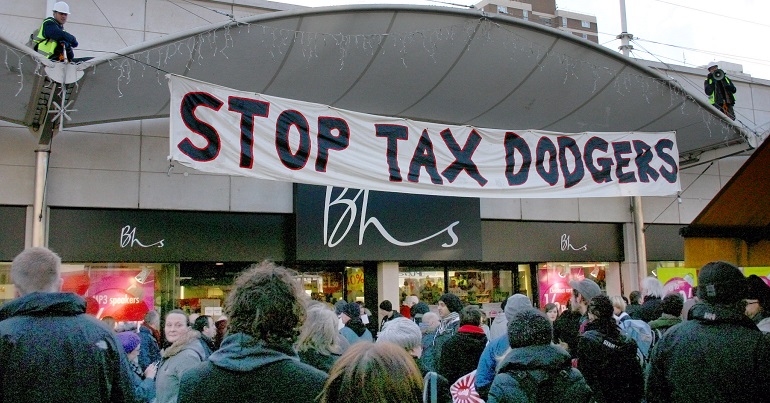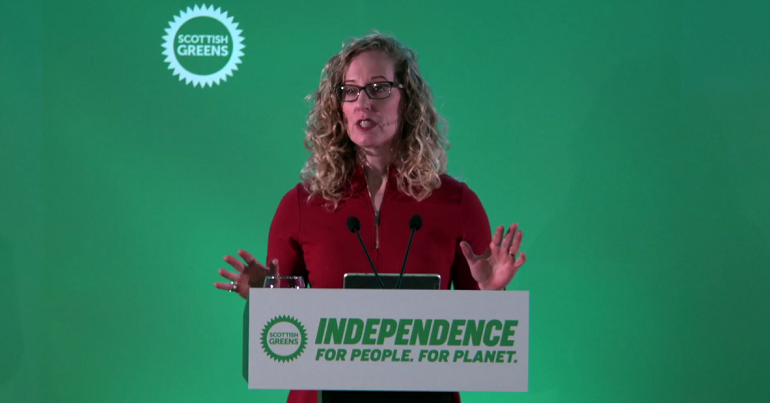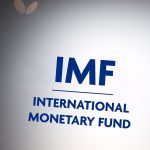The government should tax now, and tax high

Four weeks into lockdown and the nation’s favourite investment banker, Rishi Sunak, continues to harvest his ever-growing orchard of magic money trees. The UK government is seeking to borrow £225 billion to fuel the surge in public spending as a result of the coronavirus. Getting money into the hands of those that need it, Sunak has won over hearts and minds across the world, his plans even getting praise from Bernie Sanders. Has the crisis forced the Tories to change course? Unfortunately not, as Sunak recycled lies of conservative chancellors past, “we’re all in this together”, we should remember we’ve been here before.
Over the last ten years, the Tories have tried and failed to finance public debt caused by bailing out the banks by stripping every public service to the bone. In doing so they have destroyed our economy. Not only have they failed to achieve their sole aim of a budget surplus; but, as shown by a UN commissioned report on poverty in the UK, the brutality of the austerity measures they have taken have resulted in 100,000 premature deaths, unstable work conditions for millions of people and half a million more children are now below the poverty line. As spending continues to increase; have the Tories taken a different approach to public finances? In short no. At least not yet.
Sunak is planning to finance his spending, by borrowing from bond market investors. In other words, all spending is creating debt. However, public debt does not have to surge at the same rate as public spending; a healthy chunk of public spending can be financed through taxing those profiting from the crisis. While working people are suffering, a cohort of disaster capitalists and the already super-wealthy are profiting off this crisis. Jeff Bezos alone has seen his fortune swell by over $28 billion during the pandemic. If we really are ‘all in this together’ Sunak should match words with action and introduce a range of taxes to end the super wealthy profiting at the hands of those in need.
The first should be a windfall tax on all companies profiting off the crisis. Google, Netflix, and Amazon, to name a few, are all seeing an increase in revenue as a result of the coronavirus. While nearly all local businesses are suffering, billion-dollar, multinational companies should not be profiting off the crisis. By having a, say, 90% tax on the profits of these companies over the duration of the crisis, it would provide a base of money to be funnelled back into local economies to reboot them once lockdown ends. The injustice of profiting off the coronavirus is recognised by Bezos who gave $100m to US food banks however this is a pathetic 0.1% of his $123billion fortune. The UK government shouldn’t wait for Amazon’s charity, it should tax them.
Second should be new income tax rates to finance a Universal Basic Income (UBI). Something the Green movement has been calling for years must be realised by this government, giving every citizen enough money to cover their basic needs. The injustice of the coronavirus has triggered an outpouring of community spirit and goodwill to help those worst affected: millions of people are volunteering for the NHS and mutual aid groups, businesses are providing food and shelter to people in their local communities, and every Thursday the nation ‘claps for our carers’. These acts, that have no doubt both saved and changed lives, represent the power of redistributing our resources to help those in need. New income tax rates to finance UBI would see a redistribution of wealth from those who continue to have high incomes during this crisis to those without. We should see UBI as the government legitimising the community spirit we have shown on the ground.
Finally, the government should harness its tax powers to create a sustainable, carbon-zero future. As businesses try to re-emerge out of the coronavirus crisis, the government must face up to the climate breakdown being caused by ‘business as usual’. They should harness taxes as part of a wider plan to transition to a carbon-zero economy. Taxes such as a frequent flyer tax, could reduce the demand for air travel and prevent airlines growing to their previous size. Moreover, this would create a dividend to be invested in alternative, sustainable, forms of transport. Similar taxes across all sectors of the economy would allow a managed decline of polluting business to be replaced by sustainable, government funded industries.
While Sunak holds off on taxing the rich to finance his spending, we should all remain wary. Without wealth redistribution, the money being put in the hands of workers today is a poisoned chalice – a loan that will be paid for by further cuts to the public sector, and further hardship. Money has not disappeared; instead of it going to your local cafe, pub, or corner shop, it’s being put in the pockets of the super-rich. Their greed knows no limits, their charity minimal. It is both morally and economically just for governments to tax now and to tax high. Taxes are not a silver bullet for a fair economy to emerge, but they are a crucial piece of the puzzle.
Image credit: Dominic Alves – Creative Commons



Very good
Very interesting article and one who’s policy aim and ideological goal I can sympathise and admire. However I would wonder your thoughts on how to implement such a tax? How would a British government seek to enforce this when we are more isolated than ever having left the EU (although Mr Macron would say that the EU has its own tax havens – see his criticism of France and Portugal). Would it be a case of barring such companies from operating within the UK – if so surely starving out economy of the money they inject via means other than tax? Would it possibly be worth considering a increasingly stratified system of corporation tax? One which would allow small companies to pay within their means but at the same time band the brackets to create a fairer buisness system? How about taxing profits similarly to income with it not being the number of staff or size of business but its profits and dividends to shareholders being charged a tax proportionate to the overall profit of the company? This in my opinion is the best way we can do this as although you mention Bezos’ large net worth as I am sure you are aware only a small percentage of this is in money most of it is locked up in bonds and shares which is often overlooked in the debate. Is it not necessary we band our corporation tax just as we band our income tax? How to ensure companies cannot continue to hoard money within their organisation is a different matter (with bricks and mortar value and hoarding of inventory) i would be interested in your opinion?